The popularity of Wilkie Collins is as unquestionable as his mannerism, and when this story bears the title 'I Say No', it is characteristic of him that the meaning of this title is not made clear until three fourths of the novel has been read. The plot is, as usual, very carefully and strongly conceived, and the reader is allowed to think that he has the clue to the secret at an early period, whereas the secret is really quite different from what seems most probable. The general effect of 'I Say No' is much less sensational than many of the author's former stories. The situations are not void of theatrical tone, but they are distinctly quieter and more subdued. It is in fact more the society play than the melodrama, but it is dramatic. The women of, Mr. Collins's novels are usually weaker than his men, and his old and eccentric women are better than his young girls. Perhaps this is because all his women are really men worked over, so to speak, and his old women are the most natural because age has a tendency to assimilate the characteristics of the sexes. Miss La Sor, in the new story, is decidedly disagreeable, but her vices are rather those of human nature than of a woman, and she is drawn with a certain vague indeterminateness, as though the author originally meant her to fill a much more important place, but had thought better of his purpose. The story indeed is considerably shorter than most of Mr. Collins's novels, and the plot is far less intricate. This the reader will be apt to resent, for it is plot, and plenty of it, he wants when he goes to this author. Wilkie Collins has always had a large audience, however, and unless his powers fail, as this latest of his works certainly does not appear to indicate, he always will be read widely. And this is right, for he is a thoroughly wholesome and sweet writer, whoever punishes Vice and rewards Virtue, and gives us the most fascinating and complicated of plots, and thrills us with cunning detective enterprises, and surprises us with novel modes of committing crimes, and getting married, and perpetrating, bigamy, and all kinds of exciting affairs. And the world will prob ably always prefer novelists of this school to those who delight in analyzing thoughts and sentiments, and who eschew action and plot as vulgar and coarse.
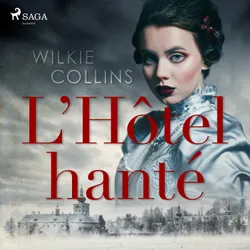
L'Hôtel hanté
Wilkie Collins
audiobookbook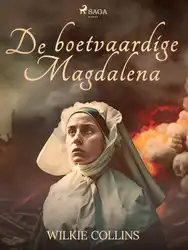
De boetvaardige Magdalena
Wilkie Collins
book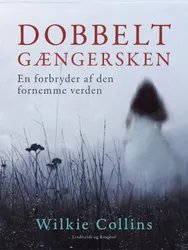
Dobbeltgængersken. En forbryder af den fornemme verden
Wilkie Collins
book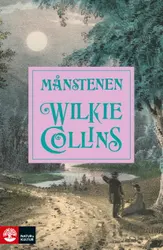
Månstenen
Wilkie Collins
book
The Woman in White
Wilkie Collins
book
No Thoroughfare :
Charles Dickens, Wilkie Collins
audiobook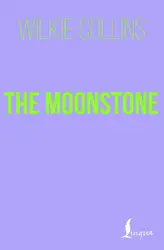
The Moonstone
Wilkie Collins
book
The Haunted Hotel :
Wilkie Collins
audiobook
Library of Masterpieces - 100 Books to Read in a Lifetime
illiam Shakespeare, Fyodor Dostoevsky, Louisa May Alcott, Miguel de Cervantes, John Milton, Jane Austen, Charlotte Brontë, Emily Brontë, Anne Brontë, William Makepeace Thackeray, George Eliot, Charles Dickens, Thomas Hardy, Jonathan Swift, Daniel Defoe, Joseph Conrad, Robert Louis Stevenson, Mary Shelley, Bram Stoker, Arthur Conan Doyle, Wilkie Collins, Oscar Wilde, T. S. Eliot, D. H. Lawrence, James Joyce, Virginia Woolf, E. M. Forster, Evelyn Waugh, Aldous Huxley, George Orwell, H. G. Wells, Lewis Carroll, Frances Hodgson Burnett, Kenneth Grahame, C. S. Lewis, Malcolm Lowry, Ford Madox Ford, Mark Twain, Jack London, Herman Melville, Ernest Hemingway, Jack Kerouac, Nathaniel Hawthorne, Edith Wharton, Walt Whitman, Kate Chopin, Harriet Beecher Stowe, Neale Hurston, Richard Wright, Raymond Chandler, Dashiell Hammett, F. Scott Fitzgerald, John Steinbeck, William Faulkner, Margaret Mitchell, Sylvia Plath, Carson McCullers, L. Frank Baum, L. M. Montgomery, Leo Tolstoy, Ivan Turgenev, Nikolai Gogol, Johann Wolfgang von Goethe, Friedrich Nietzsche, Thomas Mann, Franz Kafka, Erich Maria Remarque, Albert Camus, Marcel Proust, Jules Verne, Victor Hugo, Gustave Flaubert, Stendhal, Alexandre Dumas, Henrik Ibsen, Rudyard Kipling, Homer, Sophocles, Virgil, Laozi, Sun Tzu, Plato, Marcus Aurelius, Dante Alighieri, Niccolò Machiavelli
book
The Woman in White
Wilkie Collins
book
The Moonstone
Wilkie Collins
book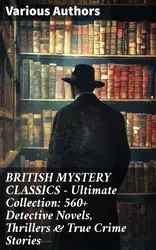
BRITISH MYSTERY CLASSICS - Ultimate Collection: 560+ Detective Novels, Thrillers & True Crime Stories : Unraveling British Mystery Classics: From Sherlock Holmes to Intricate Puzzles
Arthur Conan Doyle, Ernest Bramah, Arthur Morrison, Wilkie Collins, Thomas W. Hanshew, Edgar Wallace, Frank Froest, J. S. Fletcher, C. N. Williamson, A. M. Williamson, R. Austin Freeman, E. W. Hornung, G. K. Chesterton, H. C. McNeile, Victor L. Whitechurch, Annie Haynes, Ethel Lina White, Rober Barr, Isabel Ostander
book
